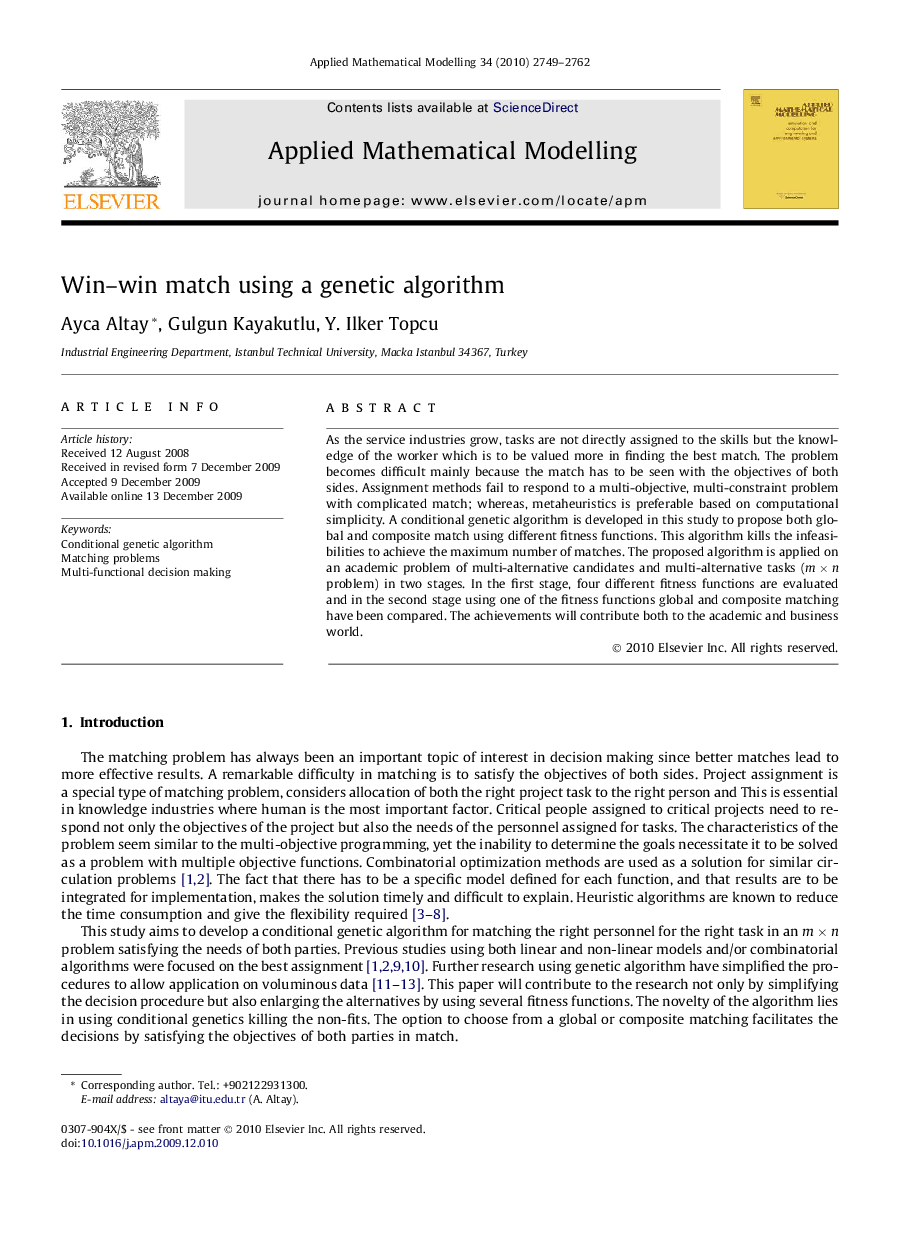| Article ID | Journal | Published Year | Pages | File Type |
|---|---|---|---|---|
| 1706540 | Applied Mathematical Modelling | 2010 | 14 Pages |
As the service industries grow, tasks are not directly assigned to the skills but the knowledge of the worker which is to be valued more in finding the best match. The problem becomes difficult mainly because the match has to be seen with the objectives of both sides. Assignment methods fail to respond to a multi-objective, multi-constraint problem with complicated match; whereas, metaheuristics is preferable based on computational simplicity. A conditional genetic algorithm is developed in this study to propose both global and composite match using different fitness functions. This algorithm kills the infeasibilities to achieve the maximum number of matches. The proposed algorithm is applied on an academic problem of multi-alternative candidates and multi-alternative tasks (m × n problem) in two stages. In the first stage, four different fitness functions are evaluated and in the second stage using one of the fitness functions global and composite matching have been compared. The achievements will contribute both to the academic and business world.
